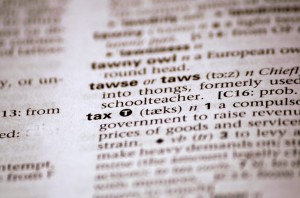 Tax season can be a headache for anyone unfamiliar with the subject, and finding the best software to take care of most of its annoyances is no exception. While QuickBooks is great for taking care of much of the heavy lifting, it can still take some time for new users to get used to it.
Tax season can be a headache for anyone unfamiliar with the subject, and finding the best software to take care of most of its annoyances is no exception. While QuickBooks is great for taking care of much of the heavy lifting, it can still take some time for new users to get used to it.
With that in mind, here are the top 6 tips to getting the most out of QuickBooks during the tax season.
Request a Special Copy of the QuickBooks File
This is mainly for accountants who are faced with the burden of editing a client’s QuickBooks file to make it “tax season compatible.” While those that normally take care of their own taxes won’t need to worry about this, it’s still useful information for knowing what areas to take special interest in.
- It helps to reduce the number of expenses that are incorrectly classified.
- It will allow for the removal of personal information that may have been incorrectly listed in expense accounts.
- It will cut down on the number of duplicate or erroneous transactions that show up.
Pay Attention to the Dates
Going over the dates in preparation for the coming tax season is important to ensure that not only are your transactions up to date, but that they are also in the correct timeline and accounted for in the correct tax season. This is of particular importance for those transactions that take place between the 15th of December and the 15th of January.
Don’t Accidentally Double the Number of Open Bills
For those who aren’t too proficient with QuickBooks, it isn’t uncommon to have bills or cheques show up numerous times in a single QuickBooks file. Not only is this a sloppy and inefficient way of bookkeeping, but it can also give an inaccurate estimate as the costs of running a business and the amount of money that is still currently owed.
But Don’t Overestimate Either
Though it’s important to track all expenses and incomes for the given time period in the process of tax computation, it’s equally critical on the other end of the scale, to keep Accounts Receivable correctly up to date as well. After all, no one wants to estimate a higher income than they’re actually receiving, as that just increases the amount of taxes payable with no positive benefit.
Reconcile All Bank Statements
To ensure that your bank statements are updated, use QuickBooks to acquire an outline of any checks or deposits that are waiting to be cleared. If there are still items listed in this report that are no longer outstanding, then make sure to delete them. If you don’t watch out for this, then it can create a cascade of misinformation that will backfire on you in the long run.
Check for Issues from the Past
If you’ve had issues in the past while preparing your QuickBooks for tax season, then it might be time to observe the records from past years and seek out any irregularities. Conversely, checking previous years can also be a good way of making sure you’ve done the current year correctly. After all, having a report to compare can make the effort of combing through long numbers much easier.
While these tips won’t save you the energy of preparing your taxes, they should help to guide you enough and it won’t feel like the gigantic chore that it usually is. Just remember that above all else, the best tip to preparing for the tax season is to keep your QuickBooks updated. Mistakes can cost a lot of money, but a clean QuickBooks record will help in preventing that from happening.
